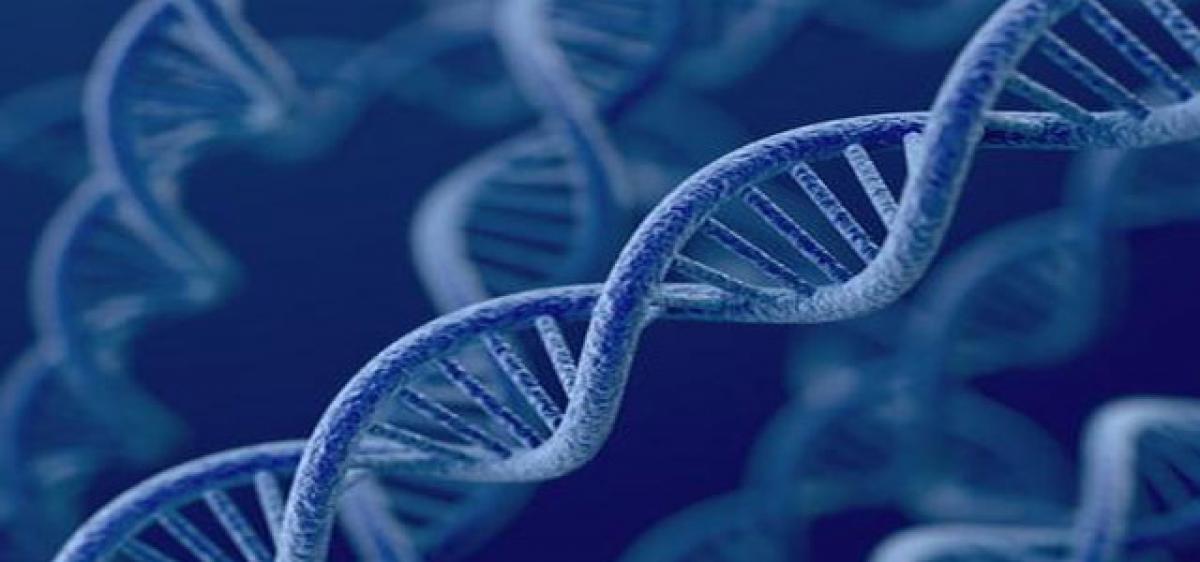Live
- Govt plans to establish offshore Johns Hopkins University Campus in India
- Goa Aces clinch Indian Racing League title
- Study finds how hormone therapy can reshape the skeleton
- High-street fashion players looking at India for manufacturing: Report
- Shreyas Iyer to lead Mumbai as Prithvi Shaw returns for Syed Mushtaq Ali Trophy
- 'Failed to resolve crisis': NPP withdraws support from BJP govt in Manipur
- Chennai: Actress Kasturi Remanded in Custody Until 29th of This Month
- Aaqib Javed likely to become Pakistan's new white-ball head coach
- BJP panel to draft poll charge sheet against AAP govt in Delhi
- Allu Arjun Thanks Fans in Patna, Teases 'Pushpa 2' Release
Just In

The unravelling of the genome sequence has led to the development of an amazing repertoire of diagnostic and predictive DNA tools enabling the scientific and medical fraternity to zero in on the disease causative factors.
The unravelling of the genome sequence has led to the development of an amazing repertoire of diagnostic and predictive DNA tools enabling the scientific and medical fraternity to zero in on the disease causative factors.
Genetic research, which is also making great strides in prognostics based on already existing genomic samples, can now make forays into an yet to be uncharted area of creating genome data banks of every new born. The creation of such banks can become a reality with specific making it mandatory.
This suggestion may appear too obscure and abstract, but from a futuristic perspective, the availability of such genetic information can enable scientists to study the genesis of diseases. For instance, if the genome data taken at the time of the birth of a patent suffering from diabetes, cancer any other diseases are available, then the changes that had occurred over the years in the genetic structure can be studied and deciphered, through which the faulty gene can be identified.
Though this may not offer a solution to the patient on whom the study is done, it can enable scientists to develop a prognostic tool to know whether a child has such diabetes or cancer causative gene.
Though scientists have to delve really deep into their knowledge base and create the tools to study the dynamics of the reported 30,000 genes in the human genome, the result of such endeavours may culminate in mindboggling possibilities. The faulty genes that can be the progenitor of a specific disease, once identified at the very initial stage, can facilitate discovery and prophylactic and therapeutic drugs.
Identification of the faulty genes can help prevent the eventuality of such disease even before they manifest and nip it even before the budding stage itself.
Considering such tremendous and exciting possibilities that such genome data banks could have in store, government should initiate the process to make it a reality. Because, such a system can be promoted and put in place only by making it mandatory for all hospitals in the country to create an inventory of genome samples of the new born and catalogue them.
Though such a task would have been considered herculean or impossible some years back, it is not the case today. We have a plethora of ingenious gene sequencing technologies and DNA markers which recording, storing, retrieving and isolating gene data – with many more developing by the day to make such inventories possible.
The requirement for a law is necessary, since it ensures development of genome bank of the entire population. The genome data should be incorporated into recording of every birth. Such a process should be made bereft of any procedural bottlenecks or cumbersome rules and regulations.
Imagine the futuristic advantages with people having access to their genomic data procured at the time of their birth through which their medical prognosis can be analysed.

© 2024 Hyderabad Media House Limited/The Hans India. All rights reserved. Powered by hocalwire.com







